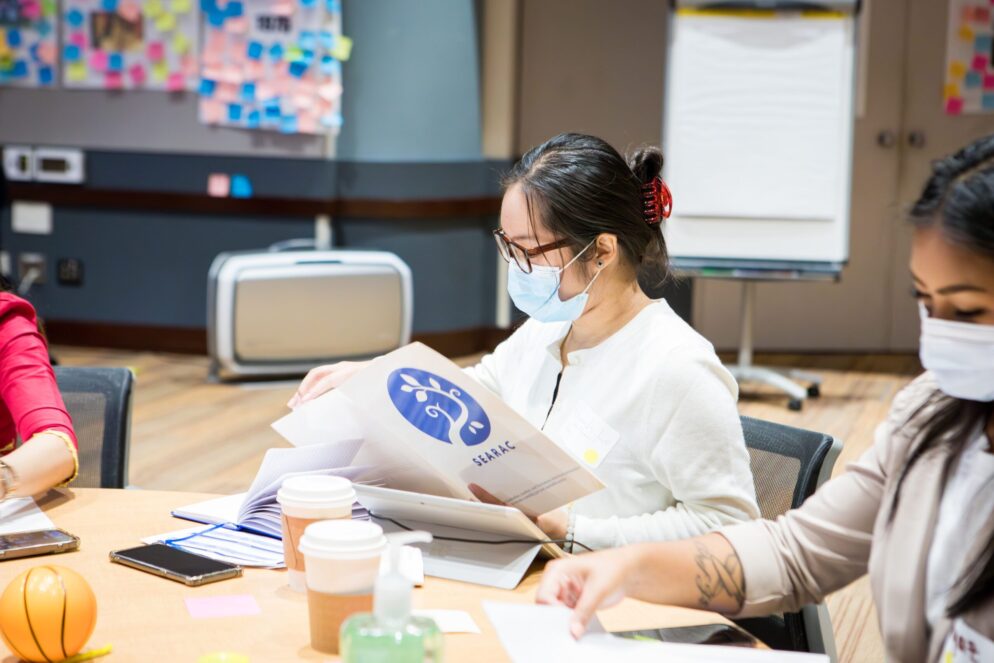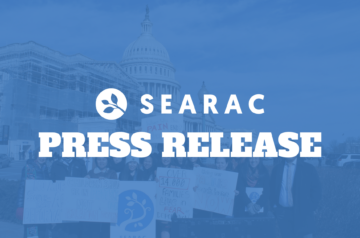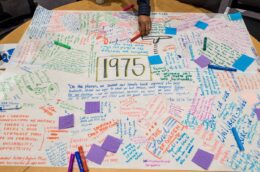SEAAs’ refugee history, their invisibility in education data and policy, and systemic racism create barriers to our students’ educational success. Our government must address the disparities that SEAA students experience and invest in their futures.
Key resources:
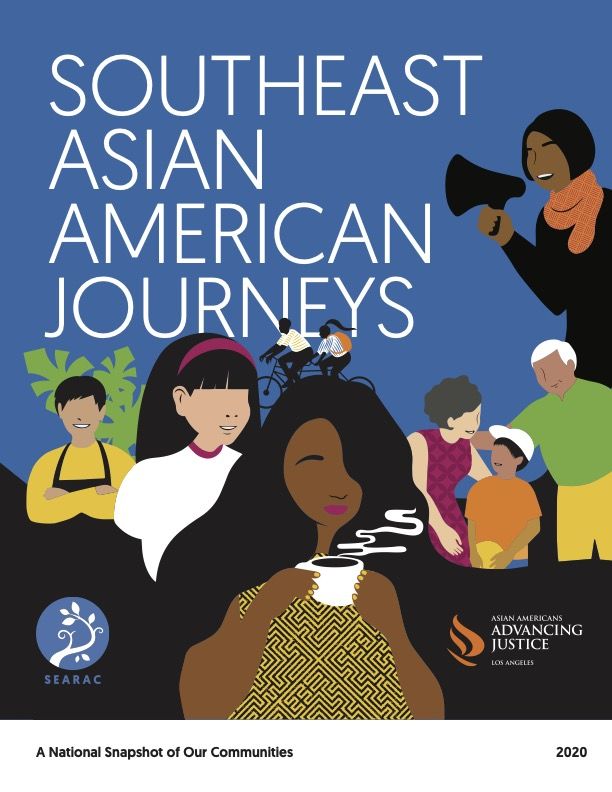

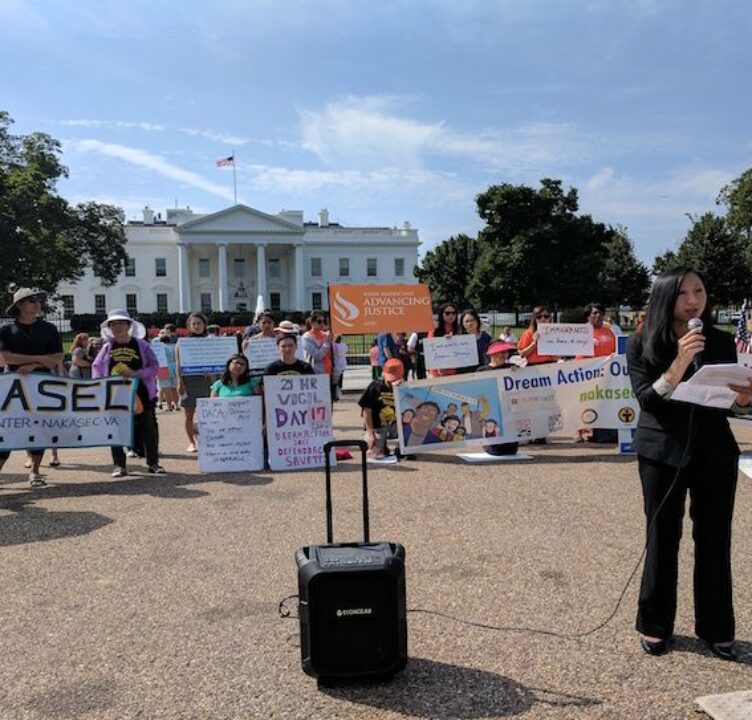
Featured story
SEARAC Responds to President’s FY2025 Budget Proposal
WASHINGTON, DC – Yesterday, the Biden administration released the Fiscal Year 2025 President’s Budget. The annual budget proposal details the President’s priorities for the upcoming fiscal year and, though non-binding, provides…
Learn more“My commitment to educational advocacy is shaped by my personal experience as a low-income, immigrant Southeast Asian student in the U.S public school system and my professional experiences as a teacher and youth facilitator. As a high school student, I experienced firsthand a lack of a culturally inclusive education and witnessed an unequal distribution of resources between my high school and the wealthier, predominantly white high school just across the bridge. Yet, I did not have the language to name what I was experiencing.”
SEARAC LAT 2019 participant
We need to be actively thinking about creative spaces and after-school programs that encourage participation from refugee parents in preparing their children for college. More importantly, we need to address language access. Without the ability to read documents or understand robocalls, parents are further barred from being informed on their child’s educational attainment and success.”
Cambodian Mutual Assistance Association of Greater Lowell
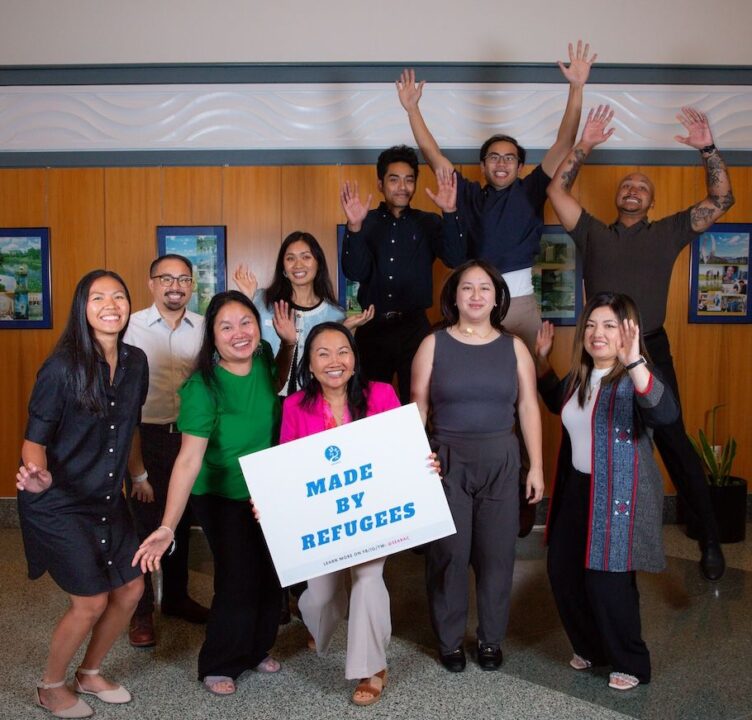
Subscribe to our newsletter for the latest updates on the SEARAC community, and to learn more about how you can get involved.
SEARAC`s January newsletter is now live! Check out national and California policy updates from the SEARAC team and our latest staff blog here: searac.org/news/2026-news-in-review/
Feb 4

SEARAC National Deputy Director Kham S. Moua will be joining our partners at @ncapagrams for this upcoming community briefing. Learn why NCAPA opposes the FY26 DHS funding bill and what this means for AAPI communities.
📅Feb 4 at 3 PM ET Link to register in bio
Feb 2

📢 Tell your senators: Do not give one single more dollar to ICE or CBP. Take action at bit.ly/rejectICEfunding. Link in bio
Jan 29

The deadline for applications to SEARAC`s LAT is approaching fast! Join SEARAC and rising leaders from across the country to deepen your understanding of the issues impacting Southeast Asian American communities and build the advocacy skills needed to advance change at the federal level.
🗓 Apply by Feb. 8
🔗 bit.ly/LAT2026app or link in bio
Tag a future leader who should apply!
Jan 29

SEARAC is hiring a strategic planning consultant! Help guide our 2027–2030 strategy and align our work with this political moment to serve and empower Southeast Asian American communities. Applications due Feb. 25. Learn more at searac.org/careers.
Jan 28


